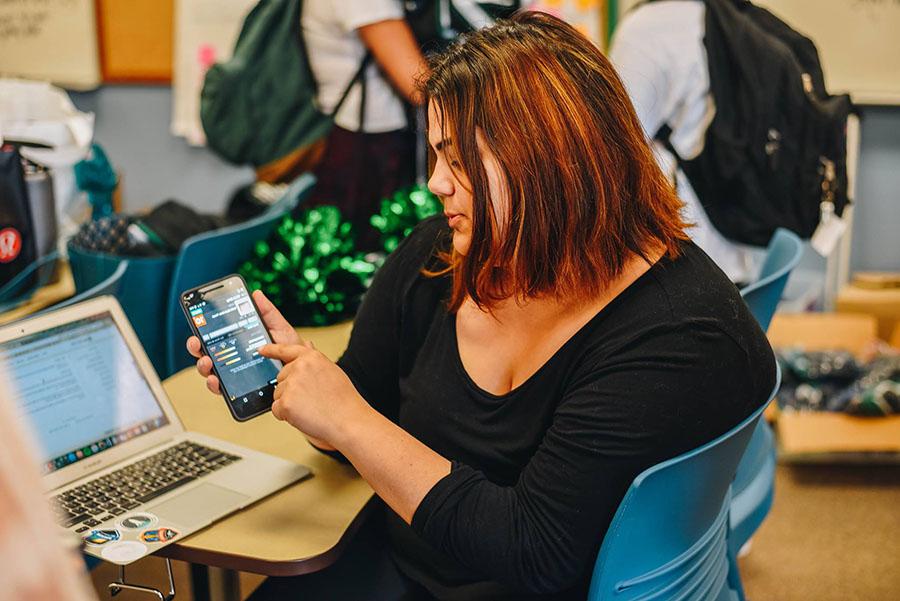Global warming will destroy our planet!” “Women should be treated and paid like men!” “End toxic child labor practices!”
Inundated by a constant barrage of heated social media posts and political-slogan-printed T-shirts, people often forget the most important part of believing in something — supporting the cause with actions. Created in 2010, the app Buycott aims to help people do just that.
The app allows users to first select organizations and campaigns they support. Later, when users are out shopping, they simply need to open the app and use its barcode scanner to check if a product contradicts their beliefs. From teachers to students, many in the increasingly politically inclined city of Palo Alto have found apps like Buycott to be quite useful.
“I think we often consume blindly,” says Palo Alto High School English teacher Alanna Williamson, who has been using apps similar to Buycott for the last two years. “If you’re buying something that you completely disagree with, then why would you continue buying that thing? And maybe you don’t know. Or sometimes I think we know but we’re really uncomfortable with having to make a change, so I think apps like this make that easier.”
With an easy, accessible way to check your spending, our modern generation has it much easier than those before us. Whether they oppose child labor or support LGBTQ+ rights, our populace now has methods of supporting these beliefs through their purchases. So put your money where your mouth is, as they say.
Our Review
The layout of the app is quite user-friendly; the main page features the recent actions of other randomly-generated members, trending campaigns and popular products. Some of the trending campaigns include boycotts of Trump products, boycotts of income inequality and campaigns supporting fair trade. Upon clicking on a specific campaign, users are taken to a page with a description of the movement and a list of the companies that create products which support said campaign.
The main problem with the app lies in its reliance on the usership of a product. When scanning new or more obscure merchandise, the app often has no information on the company behind the product and its practices. This can be frustrating for those trying to stick closely to ethical purchasing practices, but is understandable, as it is impossible to keep track of all the companies in the United States, especially those that have just popped up.
Overall, this app is a useful tool for those trying to practice ethical spending. Though its reliance on the popularity of a product does hinder its usefulness, it is a good starting point for those who want to begin aligning their actions with their words.



